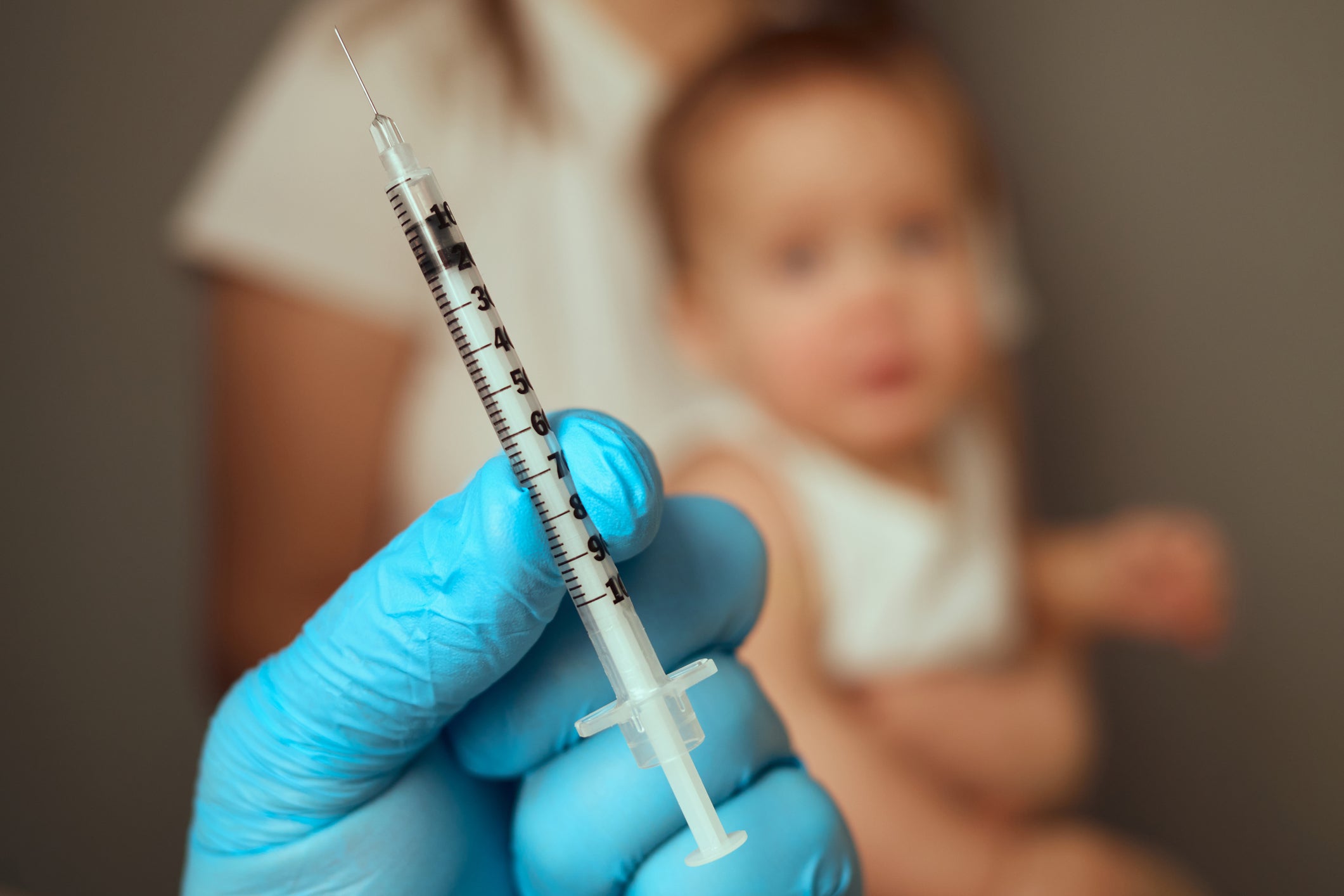HCSA leader Gabriela Rosa aims to elevate student voices

October 18, 2023 – On any given day, Gabriela Rosa’s to-do list could include a dive into the latest fertility research, a watercolor class, an executive coaching session, or an hour of weightlifting at the gym.
Rosa is a student in Harvard Chan School’s Doctor of Public Health Program (DrPH) and the new president of the Harvard Chan Student Association (HCSA). She’s also a fertility expert with 20-plus years of experience. Lifting weights and painting watercolors helps keep her healthy and grounded, she says.
The two decades she has spent at the helm of the Australia-based Rosa Institute—an organization focused on improving clinical results in reproductive medicine to help couples around the world conceive healthy babies—have provided her with leadership skills that will serve her well in helping the HCSA thrive, she says. Rosa is excited about the interest students have shown so far. “We’ve started off in a really great way. We had more people who wanted to be part of the HCSA than we had spots for.”
Rosa has big ideas for the group. She is instituting monthly general student body forums for students and is intent on improving communication among students, faculty, and administrators.
“The HCSA is able to elevate student voices in a much greater way than any individual student can do themselves,” said Rosa. “And we are also able to help students understand how to best communicate to get their needs met. A huge priority of mine is to streamline that communication so that all parties can work well together.”
“Gabriela is laser-focused on her goals and is not afraid to challenge the status quo,” said Rick Siegrist, faculty director of the DrPH program.
‘Fertility is a team sport’
Rosa also espouses collaboration in her work on fertility. “We don’t treat just one person in my program,” she explained. “We treat the couple because, as I always say, fertility is a team sport. In order to have a healthy baby, you need to have healthy prospective parents.”
Part of Rosa’s interest in fertility treatment is personal—at age 18, she was diagnosed with polycystic ovarian syndrome (PCOS) and was told she would never conceive. At that point she decided that if she couldn’t have children, she would focus on her career.
After earning a bachelor of health science in naturopathy and a master’s in reproductive health and human genetics at universities in Australia, she decided to use her skills to prepare people for “the healthiest possible pregnancies and the healthiest possible babies.” She created “The Fertility Breakthrough Program,” which integrates effective medical diagnosis and naturopathic treatment and educates people on what to eat, how to sleep better, how to avoid chemicals in the environment, and other things that can impact fertility.
“One of the biggest reasons people experience fertility challenges is because they don’t know what they don’t know,” said Rosa. “Usually no one has told them that things like what they eat or whether they drink from plastic bottles or manicure their nails actually makes a huge difference in your ability to conceive.” Rosa’s team—now 42 strong—blends empirical knowledge and evidence-based science into a holistic, supportive, and education-focused approach to fertility treatment. Rosa has also written five books on the topic of infertility. She recently published “Joyful Surrender: How to get pregnant by letting go,” which provides prompts for readers to reframe their fertility journeys positively and journal about the process.
Along the way, Rosa wondered if she’d ever be able to have children of her own. Finally, at age 33, even though she’d gone through eight years without a menstrual cycle, she decided to apply everything she’d taught her patients to herself. She managed to get back to having regular cycles—and got pregnant on her first attempt. She now has two children, ages 11 and 8.
Harvard-bound
Rosa began her studies at Harvard Chan School in 2018, after deciding that she needed to bolster her efforts in the fertility field with more training in clinical research. She was interested in the DrPH program but was advised to get more research training first. So she started with an online professional course offered by Harvard Chan’s Executive and Continuing Education program called Principles and Practice of Clinical Research. Then she came to Boston for the Summer Program in Clinical Effectiveness in 2019. From 2020 to 2022—during the pandemic, remotely—she earned a master of public health in clinical effectiveness.
Rosa’s goals in applying to the DrPH program were to learn how to communicate more broadly and effectively about alternative treatments for infertility as well as influence policy and support innovation in the fertility realm. “I was so determined to bring this to more people,” she said.
She was very worried about not getting accepted into the program. “Waiting to hear whether or not I’d be accepted, I was literally thinking about it 24/7,” she said. “I thought, ‘I need to do something else.’ I had a flash of insight: I thought, ‘Painting, color, beautiful things.’” Even though she’d never painted in her life (“Drawing a stick figure was an accomplishment for me,” she said), she signed up for a three-hour watercolor class with her mother.
Rosa found herself entranced by the colors, mesmerized by the act of painting. “Three hours went by like it was two seconds,” she recalled. She and her mother went on to take a second course, this one 10 weeks long. By week five, Rosa was relieved to receive her acceptance letter from the DrPH program.
Still, she struggled with the reality of what that would mean: moving to Boston and being away from her family and young children in Australia. But her parents told her that getting the DrPH degree was “now or never, and what you’ve been working so hard for”—and offered to help take care of the kids. Said Rosa, “If it wasn’t for their support in this way, I wouldn’t have done the program.”
Rosa has been able to juggle her many roles—student, HCSA president, fertility guru— while parenting long-distance. She plans visits with her kids during the summer and the holiday break and checks in via FaceTime every day “to hear all the latest and ensure that they are being kind with one another and completing all their homework.” And she’s still doing her watercolors, taking classes at the nearby Museum of Fine Arts, and bringing watercolor classes to the entire student body through events coordinated and sponsored by the HCSA.
Getting stronger
Weightlifting has been—literally—another source of strength and pride for Rosa. She took it up at age 38, after having her second child, when she was not happy with her state of health. “PCOS puts people at higher risk for metabolic conditions like diabetes, as well as cardiovascular disease,” she said. “My grandmothers both died from complications from diabetes—stroke and cardiovascular disease. I knew that I did not want that to happen to my life. I thought, ‘The gym is going to become part of my life, for as long as it lasts.’”
Now, she said, she “can talk about weightlifting literally until the cows come home.” She touts its ability to improve metabolic health by increasing muscle mass. “For me, it has been such a life-changing activity that has renewed my sense of what’s possible for my health and for my life as I age,” she said. “I’ve gotten strong enough that, for most of my lifts, I easily lift more than my body weight. Like meditation, being consistent in my physical practice has led to being physically and mentally strong and provides me with daily reminders of what else I am capable of in my life. I’m so grateful for my body and for my continued focus on health and all it helps me create and achieve in the world.”
She added, “So many people think that, as they age, they automatically lose strength and capability. But not only don’t we necessarily lose those things—we can actually improve them significantly over time. This is part of the next big conversation I want to have in the world. I want to show men and women that aging doesn’t have to mean decline. The passing of time affords with it the opportunity to refine and improve ourselves, our health, and our capabilities in many ways.”
Photo: Kent Dayton


